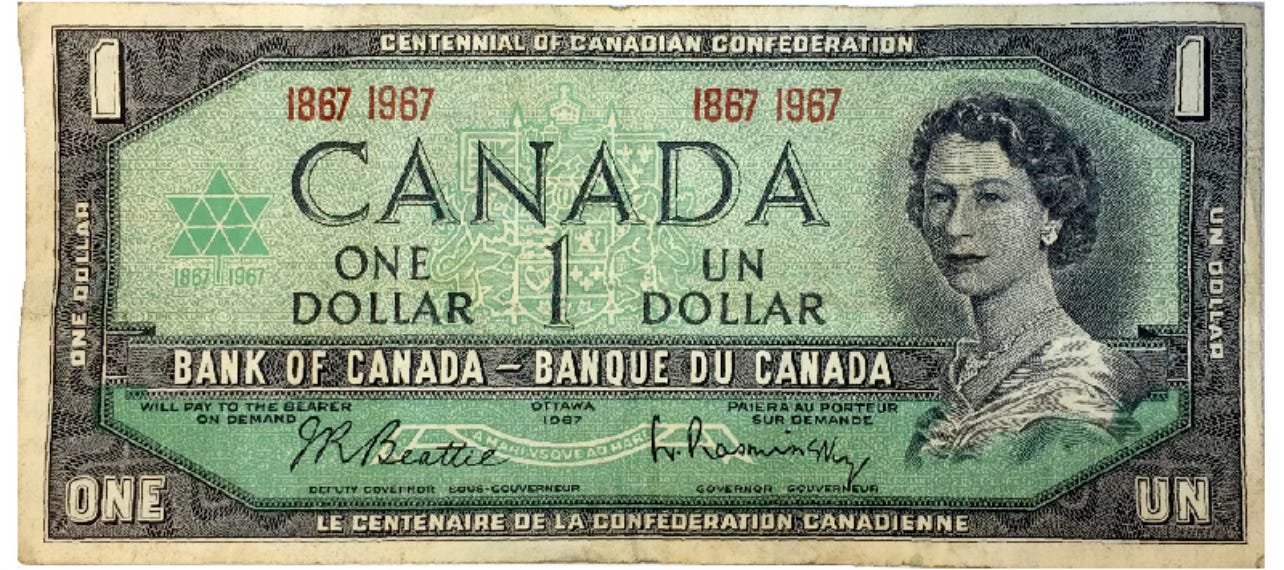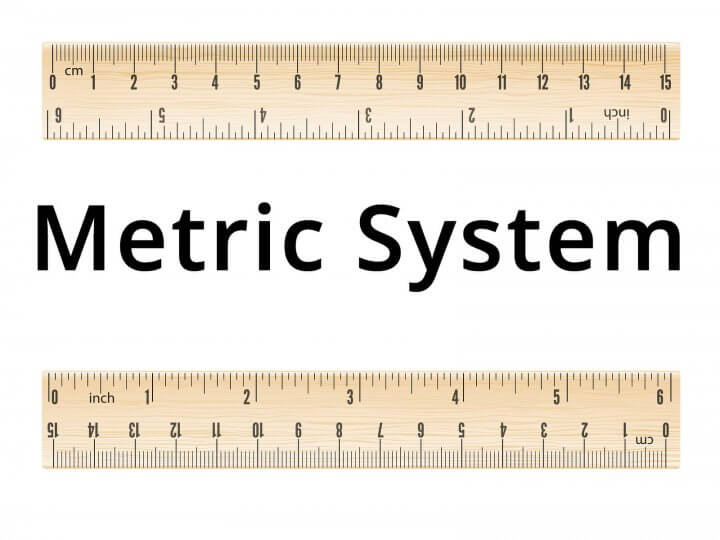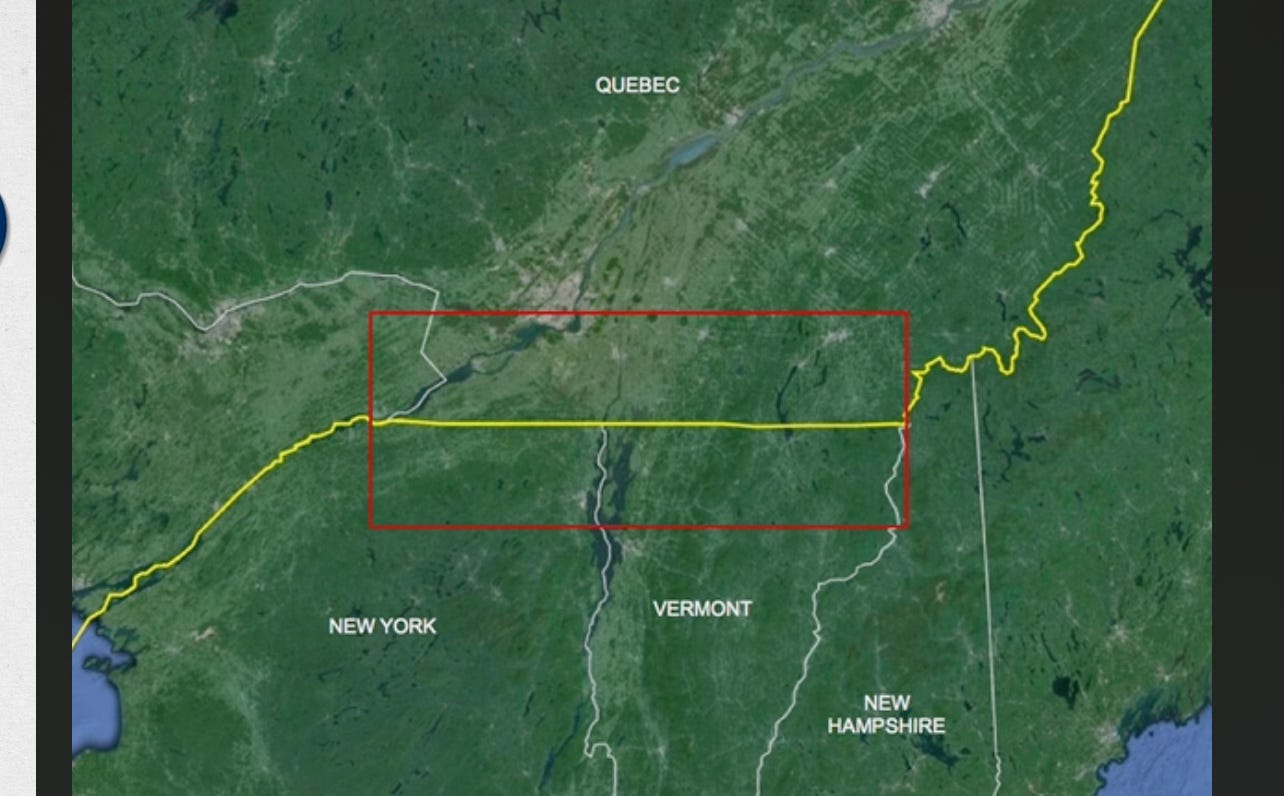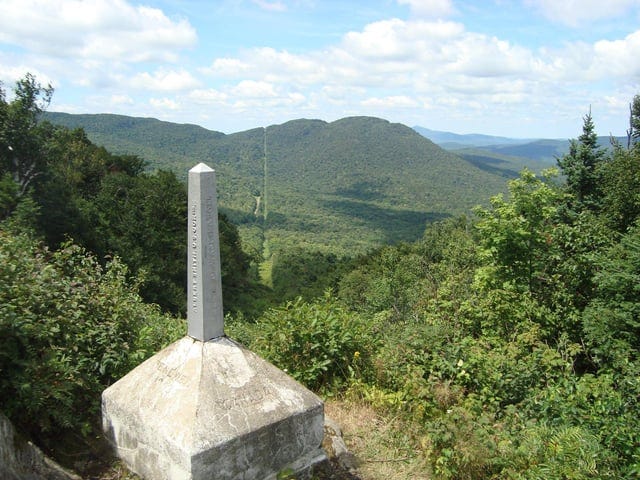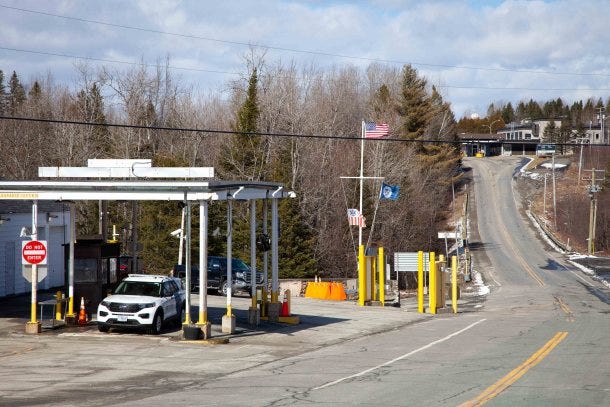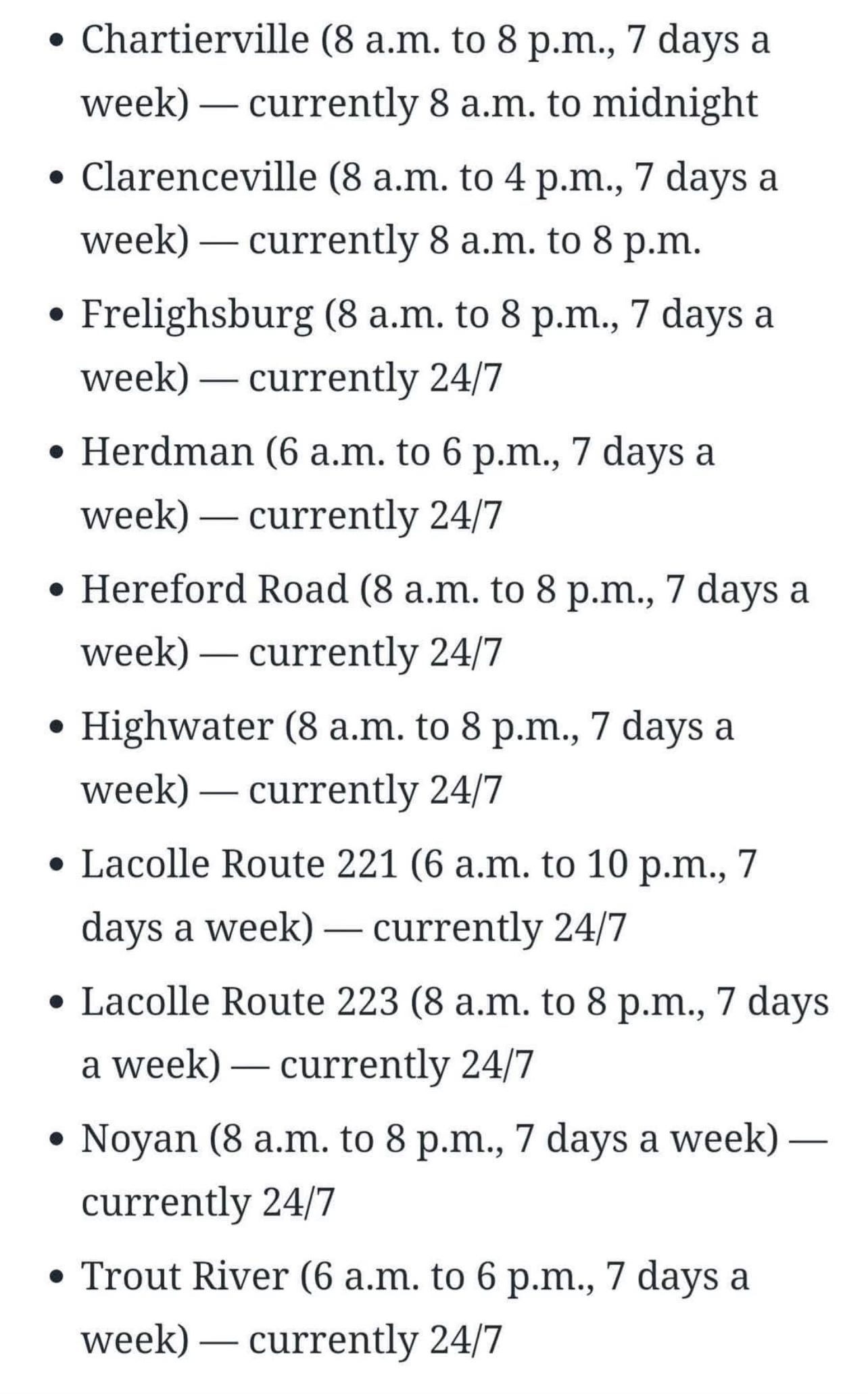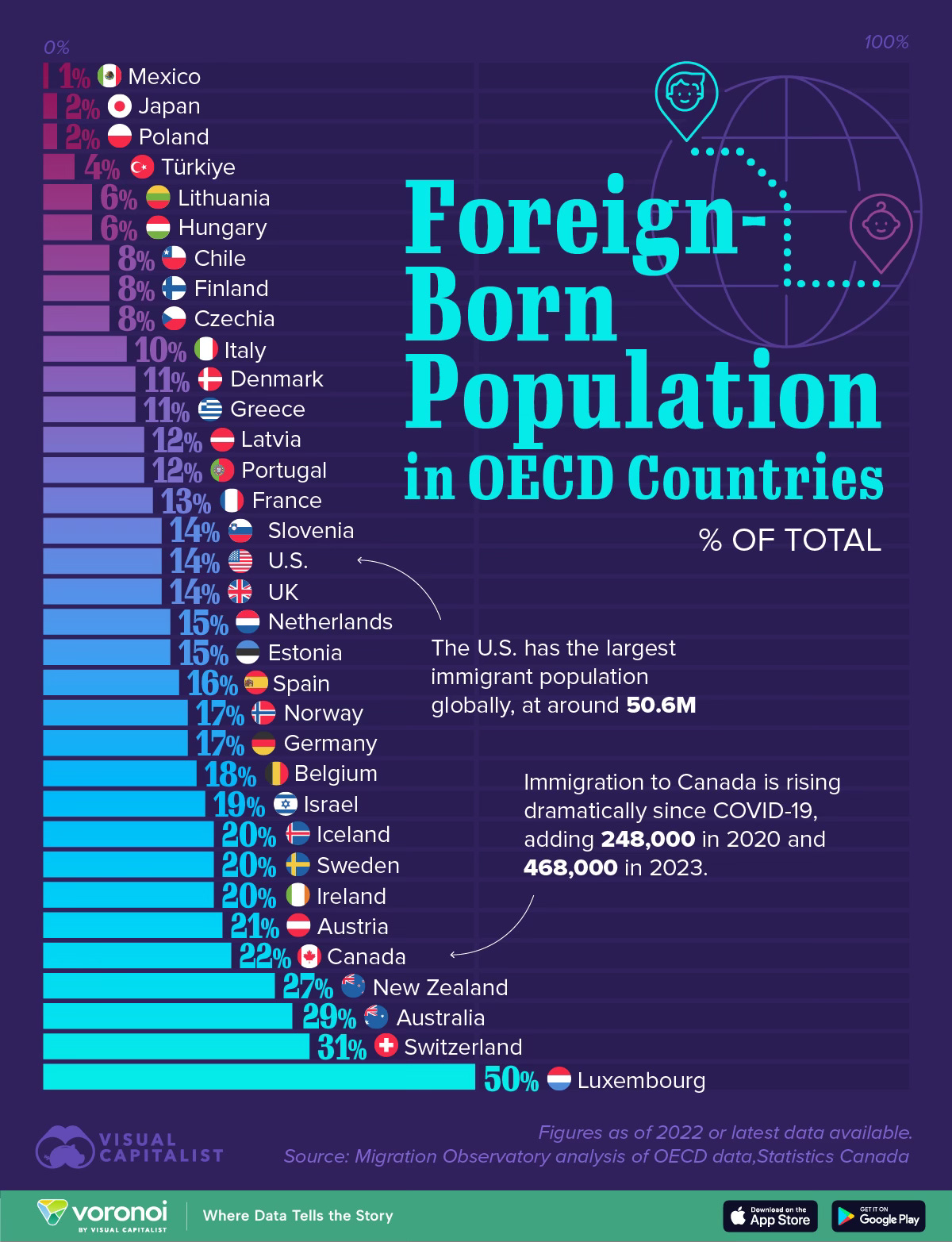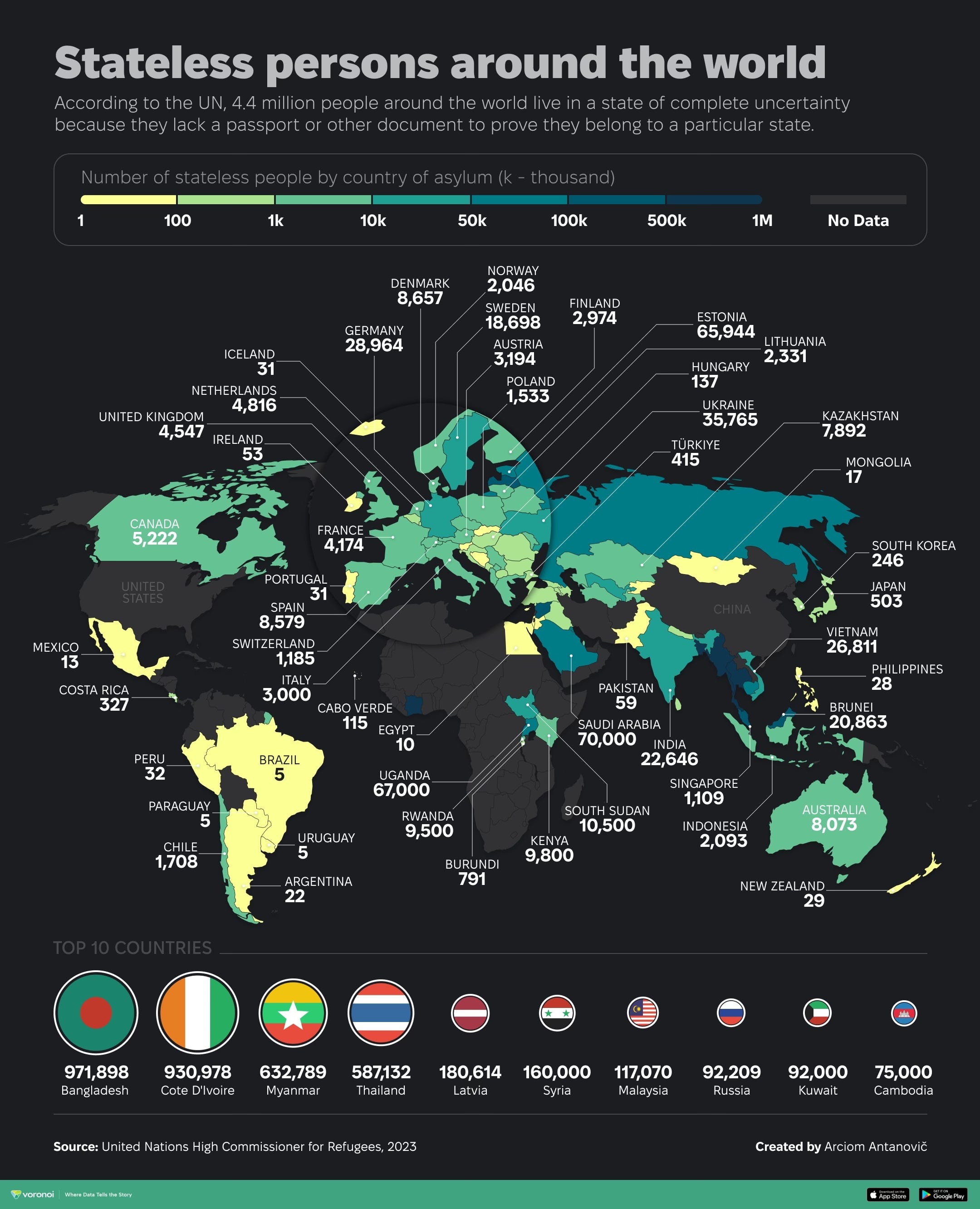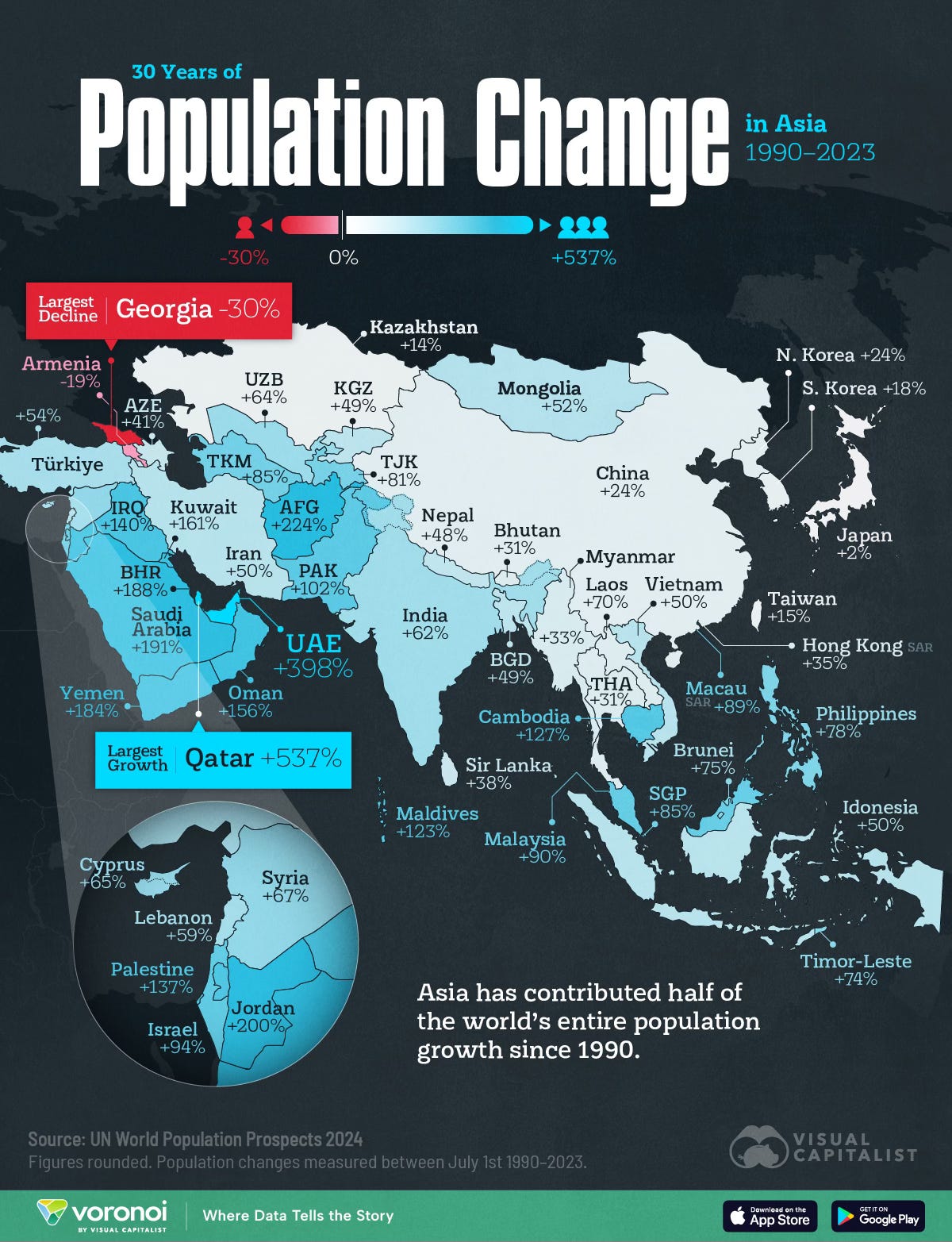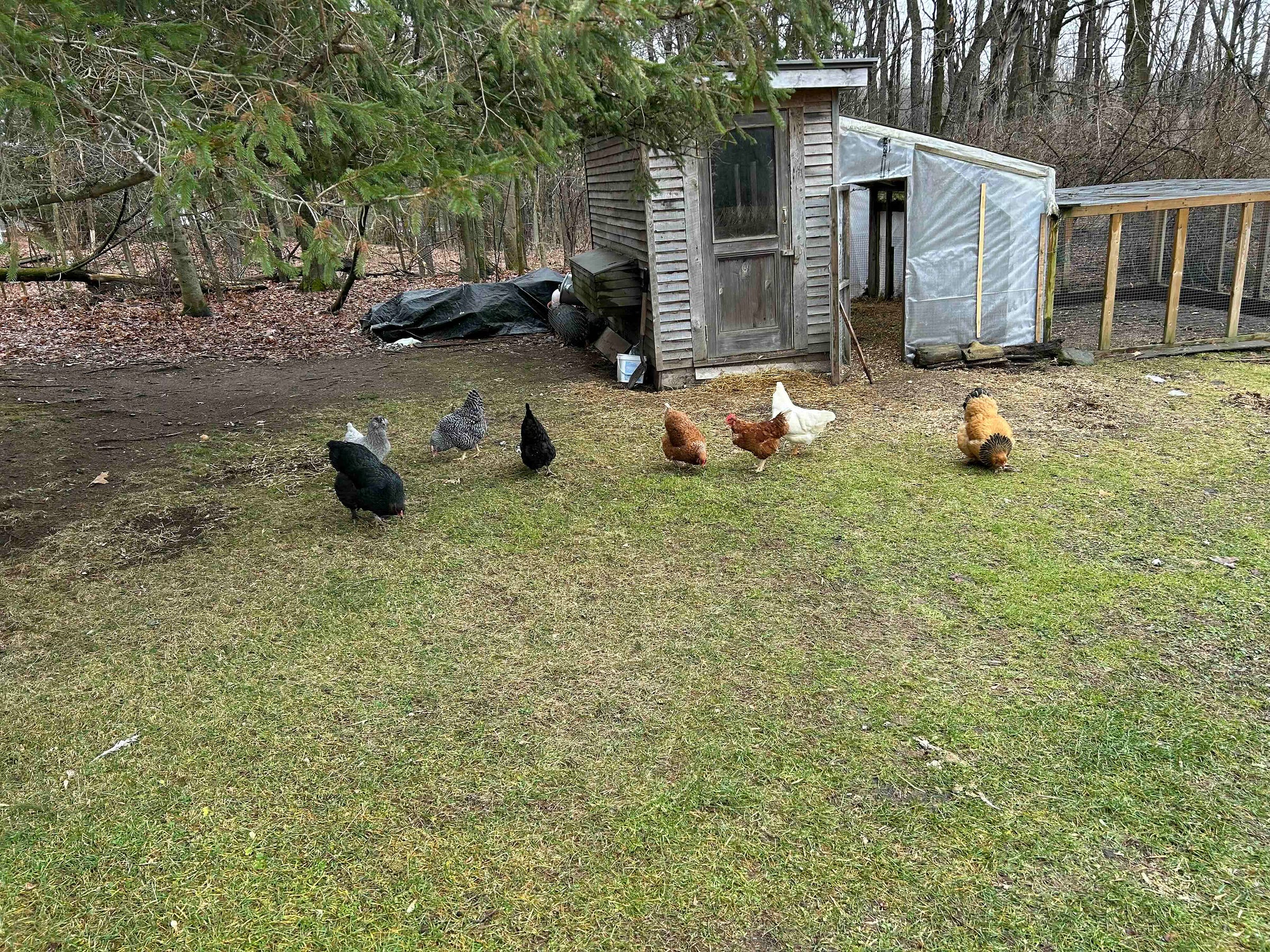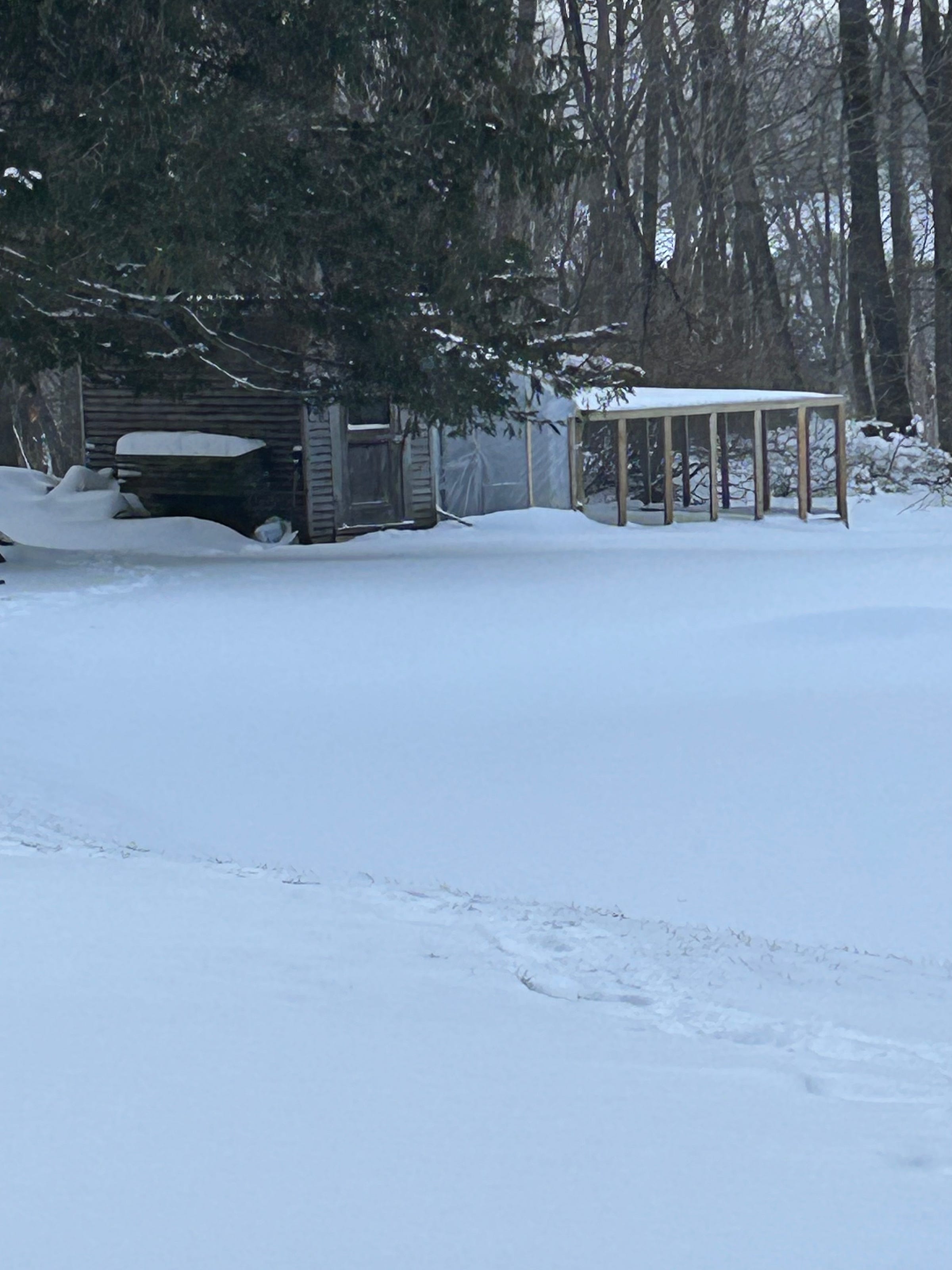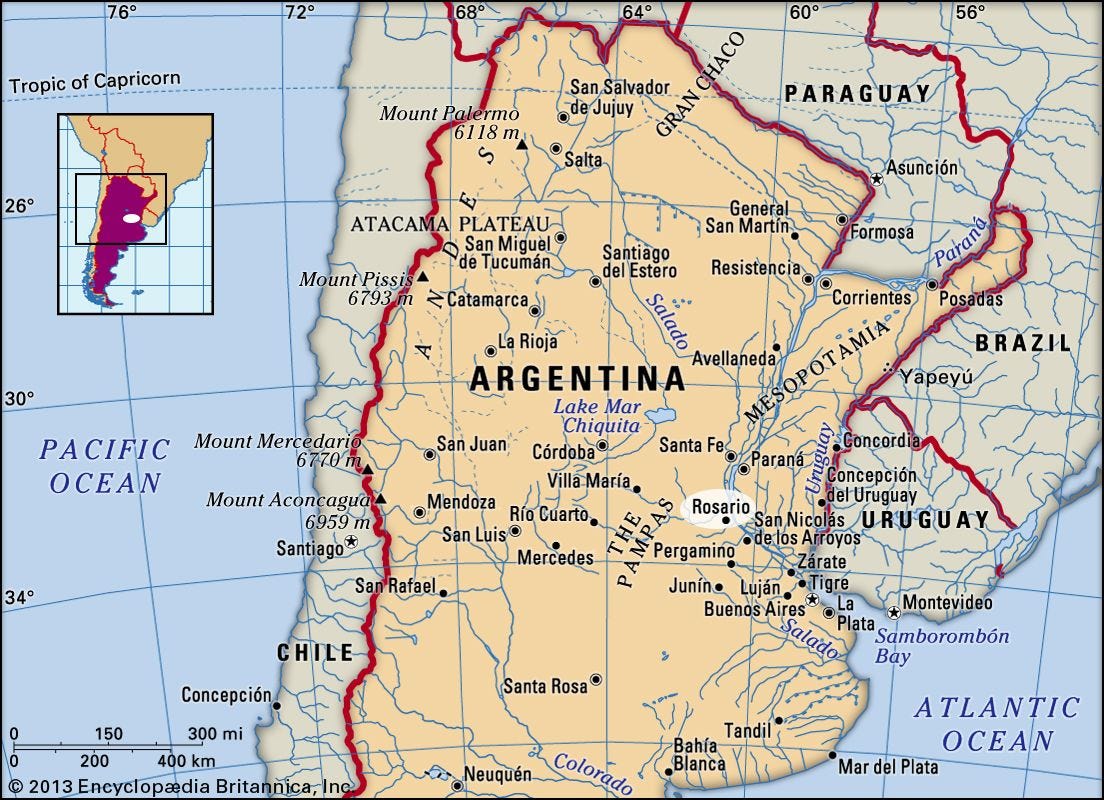New Year's Predictions, Changes at the Canada/US border and a Brief Spring.
January 6, 2025 Volume 5 # 29
New Year’s Predictions
1- By the end of the year Elon Musk will not be as rich as he is at the start of the year. Tesla may not sell as many cars as it has been. Its latest numbers out this past week show a drop in deliveries. Below is the interior of the top selling Tesla Model Y.
2- The Canadian dollar, now trading at 69.22 US, will move higher this year, in spite of the threat of 25% Trump tariffs. Here’s the old dollar and the younger Queen.
The reason is not scientific. Everyone is predicting the Canadian dollar is going lower. And everyone can’t be right, otherwise everyone would be rich, and they aren’t.
Give Them an Inch and They’ll Take a Kilometre. A Half Century of Metric.
50 Years ago Pierre Trudeau dragged Canadians kicking and screaming into the Metric world. Temperatures in Celsius instead of Fahrenheit, centimeters of snow instead of inches but still yards on the field of Canadian football.
In 1985, on the 10th anniversary of the Metric changeover, the CBC sent me to Peterborough, Ontario, to see how metric was doing. Peterborough had been one of the pre-changer over test market cities. We went to a school to interview nine and ten year olds who had never known anything but metric.
“How tall are you?” “Four foot nine.” How much to you weigh?” “Eighty-eight pounds.” It looked as if the metric system was a failure. They all spoke Imperial. The teacher took us aside and said it was because personal weights and measures were done at home with parents who thought in the old system. So I did a new test.
“How many inches in a yard?” The kid looked at me as if I had three heads and snapped back in an instant: “Fifty-two.” Teachers point proved.
The Canadian Border Adjusts to Trump Threats
Two weeks before Donald Trump is sworn in as President, the border is tightening along the 593 miles between Quebec and the states of New York, Vermont and New Hampshire. There is also Maine, but the list doesn’t include it.
We are talking about the yellow border in that red box and a bit beyond covering the border with New Hampshire. It stretches from the St. Lawrence River to Maine.
This is not a place where a lot of people live. Here is a border marker in the middle of nowhere on the Vermont/Quebec border with the open clearcut line stretching off into the distance.
There are some major border crossings, such as Champlain, New York, and Newport, Vermont, but there are a lot of minor ones, such as this crossing at North Troy, Vermont.
The Canada Customs at Highwater, Quebec, is off in the distance. I use this crossing often. Those yellow structures are to test for anyone carrying nuclear material. They were installed after 9/11 when the rural crossing was upgraded. As of Monday, January 6, there will be shorter hours at these ten crossings in both directions.
I once lived at the other end of the long border, about a mile from New York State in Elgin, Quebec. The farm across the road was right on the border. I used to cross at Trout River, and drive back a few yards to a bar that was right on the border. All you needed was a driver’s licence and they didn’t ask for it often. It is a sparsely populated area and there used to be places where people could easily smuggle things across. That all changed with 9/11. American border guards can be really tough. Now with President-elect Trump and some congressmen saying the Canadian border is a sieve, they will be even tougher. Reducing hours at smaller crossings looks like the start of it.
More World Demographics
Immigration is a huge political issue in rich countries such as Britain, Canada and the United States. The reality is people from poorer countries are looking for opportunity in richer countries. You would expect that the foreign born population would be low in a place as xenophobic and insular as Japan. But the Mexican number looks a little iffy. What about all those people from Central and South America huddled in Mexico waiting to cross into the United States? All the old British Dominions, Canada, Australia and New Zealand take in a lot of immigrants. Luxembourg is a mystery.
The elephant in the room in this chart is the United States where there is no data. But if President-elect Trump is to be believed, there are millions of stateless people in the United States who he plans to deport.
Asian Population Change
Again some mystifying numbers. Afghanistan up 224%?
US Government Pay
Median pay, so half make more and a half make less. A quarter of a million dollars seems like a lot of money to me. Members of Congress and Senators make only $174,000. Also this chart shows how many people work in these agencies. The Farm Credit System Insurance Corporation looks like an efficient shop with 10 employees. Elon Musk might be tempted to take the buzzsaw to the 4,994 people at the SEC, the cops of Wall Street that have given Musk a hard time on more than one occasion. Seems to me he got off easy when he talked up insider tips on Tesla.
Canadian Weather
New Year’s Day in Knowlton, Quebec.
A rare winter excursion for the flock.
January 4, after two and half days of snow
All the girls back safely inside, probably until the middle of March, or beyond.
Essay of the Week
Love in a warm climate
This is the next chapter of the life story of William Marshall DFC. He is now stranded on a tramp steamer in a river port in Argentina.
****
Does a boy of almost 15 feel love or lust? Shakespeare’s Romeo was about that age, maybe a year older. Bill Marshall had fancied girls at home, kissed a few. One of them even took her clothes off but he just stood there, excited enough, but not knowing what to do.
Now he knew what to do, but had never been in love. Maria and Ines were about to come into his life, and stay there for weeks on end. Because the Harmattan was about to be stranded in Rosario, as the skipper negotiated the details of the cargo, with Sparks furiously sending messages between London, Cape Town and the shipping agent about a mile away in Rosario itself.
Grain was the cargo they came for, the harvest of the great Pampas, the wheat growing plains of the Argentine. Rosario was the northern port for grain, connected to the grasslands by a railway that the British had built in the last part of the 19th century.
The Harmattan sat anchored off Rosario, as tramps always did when they were waiting for a cargo. The captain didn’t want to pay fees to berth the ship in the harbour, not until they were ready to take on cargo.
The four hour watch continued, and during the day the seamen rigged up movable scaffolding, boards tied with ropes and pulleys which allowed them move up and across the outside shell of the ship, scraping it and clearing the rust and barnacles from below the waterline, exposed as they ship sat light in the clam river port.
As they worked, the men jigged for catfish, stunning them with hammers and scrapers, keeping them fresh for the cook. To save money the captain was feeding the men on salted pork and hard-tack until the cargo was negotiated and the catfish would seem a feast.
In the early 1930’s Rosario was still a small industrial town that still had a trace of its Spanish colonial past. Within a decade it would be changed by a wave of immigration from Italy which would bring with it the working class unrest which would keep Juan Peron in power.
Argentina was changing even then, but on the surface it seemed a richer place than England to young Bill Marshall. There was an odd combination of old world formality and the openness he though existed in places like Australia and America. But there was one place where it was even more different than England. Women.
The Harmattan dropped anchor at midnight. The men looked at the shore a few hundred yards away and knew they wouldn’t get there until tomorrow, late in the day. In the morning the captain left for a meeting with a shipping agent. They knew he wouldn’t be back until well after might, since after the shipping agent, who would give him the lay of the land, he was almost certain to go to a whorehouse and a bar, in that order.
Bill, Ken and the boys went ashore around four in the afternoon and walked the streets of Rosario looking for a place to settle into. While different, Rosario was a bit of dump, like a town from the wild west, part grain and cattle, part industrial. It had none of the panache of Buenos Aires, but Bill liked it anyway.
Sparks, who was along on this tour of town, told them they could be here for a while.
“The shipping agent is very tricky,” he told the sailors as they checked out which place would become their local in Rosario. “There’s more than one cargo of grain, but London is demanding a steep price. And the skipper doesn’t want to take it back to Europe. Too dangerous.”
The youngest sailor, Bill, asked what was dangerous about carrying grain.
The Lamp Trimmer interrupted Sparks.
“Because we can’t take a heavy sea. If the hatches ever came open the grain would get wet. Then it expands. Put enough seawater in the hold and the grain will expand and split the ship apart.”
“Which is why,” said Sparks, taking control of the conversation from a man lower on the ships social pecking order, “We want to take the cargo to South Africa and not back to England or Germany. And of course the living in South Africa will be cheaper and warmer. The skipper has a soft spot for the place, and the women there. So we may have to wait it out, but that’s where we’re headed.”
The idea of South Africa appealed to Bill Marshall. Warm. Exotic. But now they were heading into a bar where two young women caught his eye. The looked at the eight men walking in and casting their eyes down moved past a curtain into another room. They couldn’t have been much older than Bill, maybe 15 or 16.
Then the owner rolled out from behind the bar on a wheelchair. Both his legs were amputated above the knee and the stumps didn’t stretch much past the leather seat. Bill was fascinated and disgusted at the same time and couldn’t keep his eyes off them, though of course there had been a lot of men with amputated limbs in Chichester.
“I like the looks of this place,” said Ken. “Judging by the looks of the owner and his girls, I think we’ll call it Daddy No Legs.” They laughed as Ken patted one of the daughters on the ass as she walked by. A pistol shot and the bottle on the table shattered.
Daddy No Legs waved his pistole, and shouted something in Spanish. No one understood it, but they knew what he meant. Look but don’t touch. And for that matter, look but don’t leer.
Almost straight away Bill started picking up a little Spanish. He was the only one of the men who was the same age as the girls and they flirted with the blonde English boy with the striking blue eyes. Those eyes flitted back and forth to Daddy No Legs to see if he was getting trigger happy.
At least four times during their long stay the pistol acted as chaperone, but always with new visitors who thought the daughters of a man in a wheelchair might be easy pickings.
They stayed in Rosario for maybe four or five weeks. The captain was not happy, and he spent hours with the shipping agent during the day, then drinking with him at night. After dinner the two of them would come to Daddy No Legs’s bar. A little later they would head to a brothel down near a tannery by the docks.
Bill Marshall stayed for Spanish lessons. Maria was the one he fancied. Dark hair, lips that were full and hinted at the pleasures of love. She smiled at Bill as she leaned across the bar talking to him. On their last night in Rosario she slipped outside with him and kissed him goodbye.
Bill went back to the ship and worked his first watch in a trance. It would be a decade before he was in love like that again.





